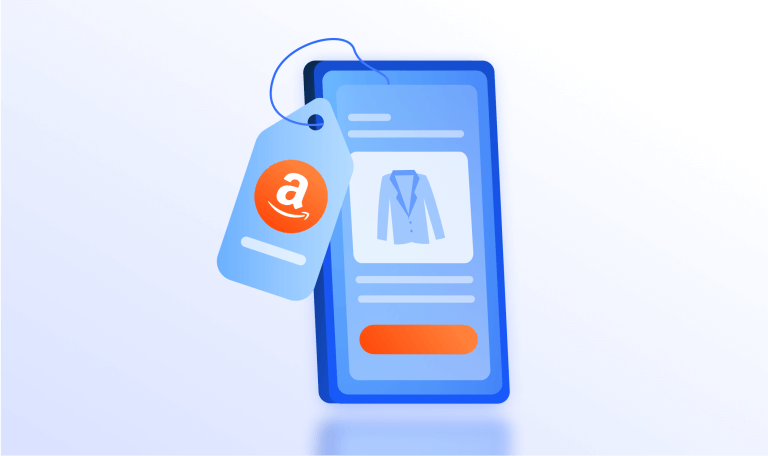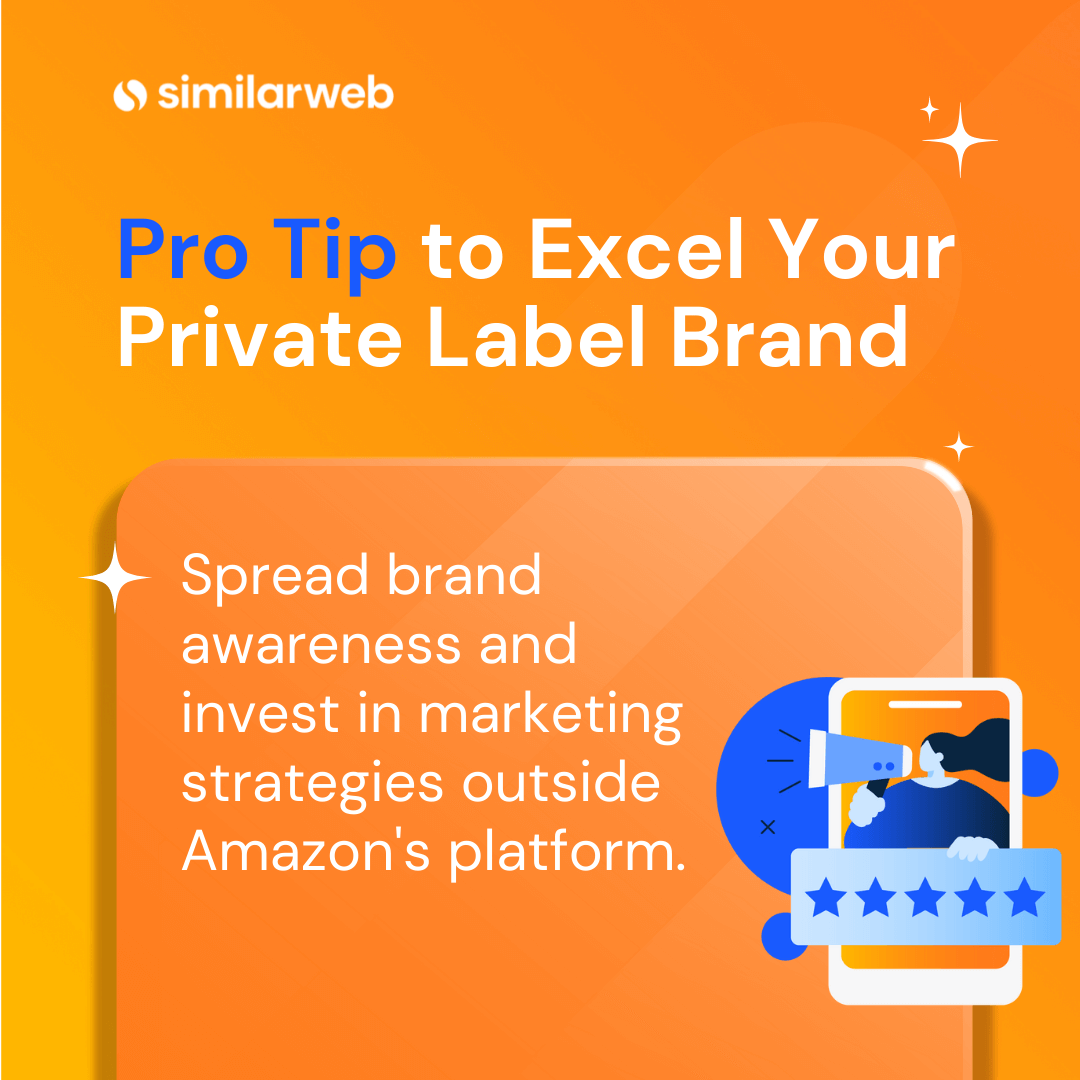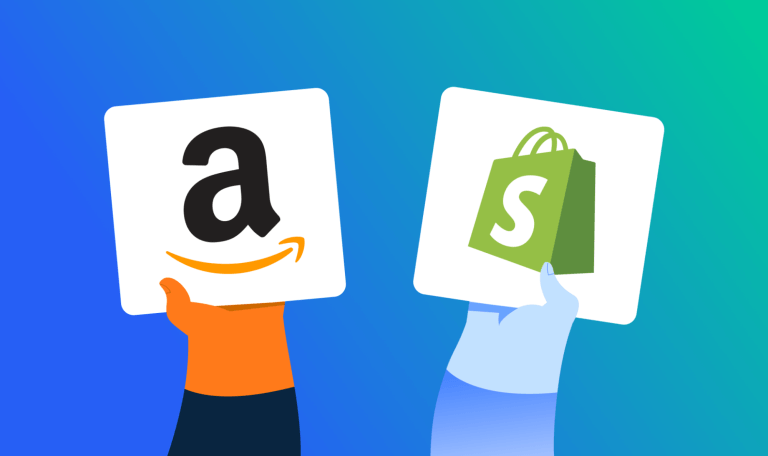A Complete Guide to Amazon Private Label Brands

Have you ever searched for a specific product from a well-known brand on Amazon and come across a bunch of products with nearly all the features of the original name brand — but for about half the price? These products are made by Amazon private label brands and the eCommerce platform is packed with them across just about every category.
Obviously, any third-party seller on Amazon would be worried about losing business to these cheaper alternatives. However, there are a few things you can do to stand out and out-compete Amazon brands.
What are Amazon brands?
Ok, let’s back up for a second.
Amazon has over 400 private brands offering 243,000 products in almost every category, from food & clothing to technical gadgets. Almost all of these products bear an eerie resemblance to something from another company. Amazon brands identify top-selling products, tweak (and often simplify) them, and sell them under their brand name at a much lower price.
Take AmazonBasics, for example. After launching in 2009 and selling heavily discounted batteries, AmazonBasics now offers more than 1,500 items, running from cameras and headphones to bedding.
The key difference between Amazon products like Echo and Kindle and Amazon private label brands is that they may or may not contain the word “Amazon” in the brand name. Some private-label brands like AmazonBasics and Amazon Essentials do, while many — like Goodthreads, Daily Ritual, and Solimo — do not, even though they are all owned by Amazon.
The popularity of Amazon private brands has skyrocketed recently, with price-conscious customers opting for affordable products over brand-name items. Tweet thisAmazon’s private brands have grown from just 30 in 2017 to over 10 times that amount. The reasons for this go beyond affordability: Amazon has built a loyal client base thanks to its excellent customer service. The company is known for offering easy search, quick delivery, and a simple return and refund policy, with customer support available 24/7.
Another reason for Amazon brands growing popularity is its targeted marketing. Amazon collects a massive amount of data and uses it to analyze customers’ search behavior and buying patterns and identify the types of products they are interested in. The company uses this data to promote its private label brands and target new customers as part of Amazon’s private label strategy.
How Amazon’s brands affect third-party sellers
Amazon has attracted significant criticism for being an eCommerce platform selling third-party goods at the same time as acting as a direct seller through its private-label brands.
Options like “featured from our brands” give exposure to Amazon’s private labels over the original products offered by third-party sellers.
Not only does Amazon use its algorithm to make sure its private-label brands are featured at the top of search results. When customers add higher-priced third-party products to their shopping carts, they may recommend cheaper products sold by Amazon private labels.
The advantages enjoyed by Amazon private label brands, not to mention the sheer volume of their products, are undoubtedly worrying to third-party sellers on the platform. A 2019 survey revealed that Amazon private label brands were one of the biggest concerns of third-party sellers: 73% of respondents said that they were worried about private label brands outperforming them, while 57% said that it was a major cause of concern.

A number of third-party brands have called Amazon out for their use of private labels and even launched legal action against the eCommerce platform for copyright infringement. In 2019, Allbirds, a sustainable shoe, and clothing brand accused Amazon of selling the same footwear under its private label brands.
However, this is not a new practice — it’s been happening for years in the brick-and-mortar landscape. IKEA and Tesco Everyday Value are examples of private-label brands that offer copycat products at a cheaper price, poaching sales from their original counterparts.
How to Compete with Amazon’s Private Label Brands
Amazon private label brands can be pretty intimidating for third-party sellers. It goes without saying that having the eCommerce giant offering a duplicate or even comparable version of your product at a fraction of the cost represents a threat to your business.
However, you don’t have to lose out to Amazon brands. There’s a lot you can do, from marketing strategies to customer service, to stay competitive and boost your sales, even on Amazon’s own platform.
1. Highlight your USP
In order to sell a copycat version of a product at a fraction of the price, Amazon’s private brands almost always have to sacrifice quality.
As one of the world’s largest companies, it can use its size to reduce supply costs and other overheads in order to keep prices down, but this only gets them so far.
Typically, these products use poorer-quality materials, inferior manufacturing processes, and/or they’ve eliminated many of the features included in the original product.
Furthermore, quality is not the only factor you may have on your side. Your products or your brand may have a number of benefits that Amazon private label companies lack.
For example, you may offer sustainable manufacturing processes, focus on fair trade, or use organic materials. Amazon brands skip over these kinds of advantages as part of their bargain-basement approach.
These factors are all your unique selling points (USPs). Promote them aggressively as part of your marketing, and be clear on what sets you apart from the Amazon private label brand.
2. Focus on marketing
The biggest downside of Amazon’s private labels is that these products have limited exposure, as their primary goal is to sell the same product for a lower price. Their target audience is budget-conscious buyers, so they don’t put much effort into marketing. All they have to offer is a low price.
That’s why these brands do not enjoy the same exposure and reputation as well-known name brands. On the other hand, brands with a trusted name and reputation have a special relationship with their target audience. Spreading brand awareness and investing in marketing outside of the Amazon platform will help you to outshine private-label brands.

Further readings: Amazon SEO: Your Guide to Getting it Right in 2022 and Amazon PPC: What You Need to Know to be a Top Seller
3. Improve your shipping and fulfillment
One of the many reasons for the growing popularity of Amazon is that it offers lightning-fast fulfillment and delivery. It’s nearly impossible for a small retailer to beat Amazon’s shipping times.
However, by focusing on shipping and fulfillment and making this as quick as possible, you’ll at least stay competitive.
There are several options for improving your shipping and fulfillment speeds:
- Outsource – Self-fulfillment can be very time-consuming, especially as orders and demand increase, outsourcing could be the answer
- Fulfillment by Amazon (FBA) service – FBA means that Amazon will handle all of your shipping, customer service, and returns (at a price!) Dropshipping: A third party will handle all production, storage, shipping, and delivery. Bear in mind, though, that fees can drive down your profit margins and you will have less control over your products. That said, you won’t need to pay for any inventory in advance, so it’s less risky.
- Offer something different – set your brand apart with a more personal touch, such as unique and sustainable packaging, as well as personalized customer service.
4. Offer great customer service
Customer service is another important factor that can allow your brand to out-compete Amazon private label brands. Fortunately, price is not the only factor that consumers consider. Customer service is equally important, and sometimes even more critical than the cost of a product. Your customers will gladly pay a few extra dollars if they’re impressed by your customer service, especially since Amazon Private Label brands don’t offer personalized customer support.
Make every effort to excel in customer service, from queries and communications through to shipment, returns, and all types of after-sale services. Offering a personalized experience, and simply giving your buyers the chance to speak to an actual person can be a game-changer and differentiate you from the private label competition.
For example, you could insert a scratch card in customers’ packages, offering them a discount code that they can use for their next purchase. Alternatively, you could supply your product with a special gift or a reward that Amazon’s private label doesn’t offer.
How well do you know Amazon Private Brands?
This is a real case study of a third-party brand and an Amazon private label. Let’s call them brand X and brand Y.
- Both brand X and brand Y appear on a Google search for “everyday sling”
- Both brands offer a one-shoulder sling bag that, at first glance, looks very similar
- Brand X’s bag is significantly cheaper
- Brand Y’s bag is better made and with higher-quality materials
- Brand Y’s bag has a number of additional features
- Brand Y’s products are more sustainable
- Brand Y enjoys strong sales and a loyal customer base, despite the higher price tag, thanks to its reputation for quality and sustainability

Can you guess which one is the Amazon private label brand and which is the third-party brand?
As you’ve probably already realized, brand X is one of Amazon’s private-label brands and brand Y is third-party seller Peak Designs.
In 2021, Peak Designs launched a video highlighting the superior quality and many advantages of their products of the Amazon private label version. Not only did the video go viral, but it shored up the third-party brand’s following and helped to boost sales.
The bottom line
Competing with Amazon’s private brands can be pretty daunting, considering the eCommerce giant’s reputation and the incredibly low prices they’re able to offer.
While Amazon’s private label brands aren’t going anywhere, by focusing on delivering a high-quality product, marketing it well, and providing excellent customer service, you’ll be able to build a loyal customer base and a strong business through the Amazon platform.
Looking for the ultimate hack to outperform Amazon private label brands? Try out Similarweb Shopper Intelligence to optimize your performance across marketplaces.
The ultimate edge in retail insight
Put the full picture at your fingertips to drive product views and sales












